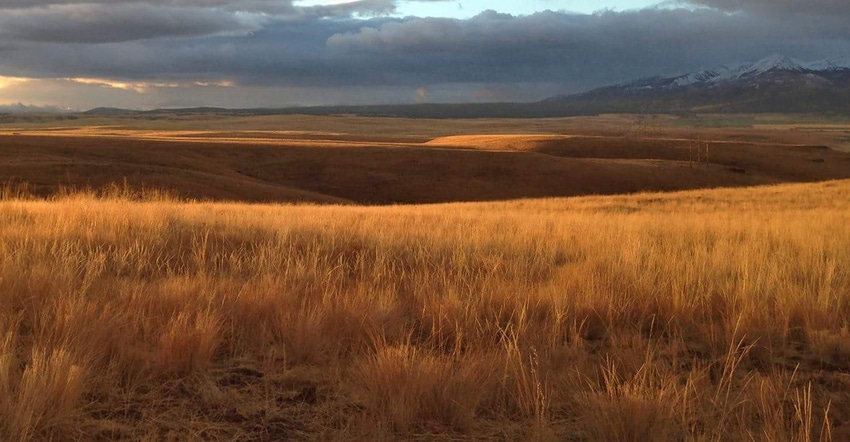June 12, 2017

There's a balance to be reached on ranch and public lands, and a recent agreement shows what's possible. The eastern Oregon Lightning Creek Ranch — owned by the Probert family — was recently entered into a conservation easement. Dan and Suzy Probert teamed with The Nature Conservancy, USDA's Natural Resources Conservation Service and The Climate Trust to make sure their 12,225-acre ranch will be managed to benefit both ranching and the native habitat.
The family sold an ag conservation easement on the property that prohibits conversion of native grassland caused by tilling or energy development, but the property can continue to be used for livestock grazing that follows a management plan.
In a statement announcing the easement, Dan Probert commented that Wallowa County is "a very special and unique place, and I believe it is absolutely critical that we protect our resources for future generations."
Conservation easements protect natural lands for future generations but allow owners to retain certain property rights. Through an easement, landowners willingly sell or donate only those rights necessary to protect specific conservation values, such as fish and wildlife habitat. These programs are working lands conservation programs that are tailored to meet a landowner's goals and the landscape's needs. The land remains in private ownership, with the remainder of rights intact, which means the land continues to provide economic benefits for the area — from jobs to property taxes.
Jeff Fields, Zumwalt project manager for The Nature Conservancy in Oregon, noted that grazing is an important factor for grassland conservation. "On large landscapes like Zumwalt Prairie, native species thrive with occasional disturbance, such as fire and grazing. Just like fire, it is critical that grazing happens under the right timing and intensity, which is what we guide with our grazing management plans on these easements."
Environmental benefit
A key feature of this easement is that without development and with its continued grassland status, the ranch will keep about 55,000 tons of carbon in the ground, which is a benefit that secured funding for the transaction from The Climate Trust.
Lightning Creek Ranch is the first grasslands project to join the Climate Trust Capital Fund I portfolio, according to Mik McKee, land asset manager for The Climate Trust. "The environmental benefits to be gained from preserving native grasslands are vast, with impacts ranging from improved water quality and soil erosion prevention to the safeguarding of carbon stored in the ground. This investment-grade project reflects our ongoing strategy of supporting quality projects in the early stages of development to elevate their impact."
The match funding for the purchase — $1.3 million — came from NRCS through the Agricultural Conservation Easement Program-Agricultural Land Easements. The program provides financial and technical assistance to provide long-term conservation and protection of agricultural lands and their related benefits. The program was created by the 2014 Farm Bill, and this is the first such project completed in Oregon.
Ron Alvarado, Oregon State conservationist with NRCS, noted that the ACEP-ALE program is a key tool to sustain pristine, working grasslands of special significance in the Zumwalt Prairie landscape, while supporting the rural economy. The Lightning Creek Ranch easement expands connectivity with other NRCS conservation programs in the Zumwalt Prairie, including a multiyear $3.1 million Regional Conservation Partnership Program project awarded this year with The Nature Conservancy as the lead partner.
A gift of $700,000 from the Doris Duke Charitable Foundation is helping, and The Nature Conservancy is raising another $400,000 for the purchase of this land easement, which the Proberts sold to the Conservancy for $200,000 less than its appraised value.
Sources: The Nature Conservancy, NRCS, The Climate Trust
You May Also Like




